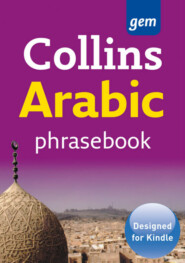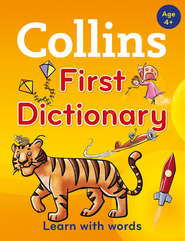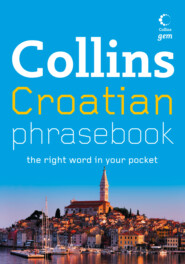По всем вопросам обращайтесь на: info@litportal.ru
(©) 2003-2024.
✖
Scots Dictionary: The perfect wee guide to the Scots language
Настройки чтения
Размер шрифта
Высота строк
Поля
bidie-in (bide-ee-in) Someone’s bidie-in is the person who is living with them as their husband or wife although they are not formally married. The word is originally from the Aberdeen area, but is now heard elsewhere in Scotland: The other significant person in McCafferty’s life is Joanna, the woman he fondly describes as his ‘bidie-in’.
biggin or bigging A biggin is a slightly old-fashioned word for a building: A sweet old granny came toddling up the brae to the biggin. In particular, the outbuildings and labourers’ cottages on a farm or estate are sometimes referred to collectively as the biggins.
bike A variant spelling of byke.
bile To bile is to boil. A fairly rude way of informing someone that they should go away, or that they are talking rubbish, is to tell them to bile their heid.
biling A biling of vegetables, especially potatoes, is enough of them to do for one meal; a Northeastern word. Biling also means very hot: Can ye no open a windae? It’s biling in here. See also boiling.
billy A billy is an old-fashioned word for a man or lad, often implying that the person is a friend or workmate.
Billy or Billy Boy In the Glasgow area, a Billy is an informal name for a Protestant, as in the sectarian football chant which begins Oh I’d rather be a Billy than a Tim. [The term is probably from the name of the Protestant King William III, who defeated the deposed Catholic King James VII (James II of England) in the late 17th century]
bing A bing is a large hill-like mound of waste from a mine or quarry: Large oil-shale bings disfigured the countryside.
binger (bing-er) A binger is a West Central Scottish slang term for a losing bet, especially one on an unsuccessful racehorse.
birk A birk is a birch tree.
birl To birl is to spin or revolve: She watched the clothes birling round in the washing machine.
birse (birss) To have or get one’s birse up is to be or become angry or annoyed. [The phrase comes from an earlier sense of birse meaning bristle]
bit 1 In parts of South and West Scotland, the place where someone lives is known as their bit: Can Kirsty come out and play at my bit?2 A bit is a boot.
black-affrontit (black a-frunt-it) or black-affronted To be black-affrontit is to be very embarrassed or offended by something.
black bun Despite its name, black bun is not actually a bun, but is a type of very rich dark fruitcake covered in pastry, which is traditionally eaten at New Year.
blackening A blackening is a type of pre-wedding ritual carried out in some areas where the bride or groom is smeared with mud, treacle, or some similar dark-coloured substance and then often paraded through the streets by their friends.
black house
black house A black house is a type of thatched house formerly found in the Hebrides and West Highlands, which was built mainly from turf and had an open fireplace in the middle of its one room. [The term is a translation of the Gaelic tigh dubh]
blackie A blackie is an informal name for a blackbird.
Black Isle The Black Isle is a peninsula in Northern Scotland, on the East Coast slightly north of Inverness, which lies between the Moray and Cromarty Firths. [It is probably so called because until the late 18th century much of it was uncultivated black peat moor]
Black Watch The Black Watch is a traditional name for the Royal Highland Regiment in the British Army. [The name is a translation of a Gaelic term referring to the dark tartan they originally wore]
blae (rhymes with clay) Something which is blae in colour is dark blue with hints of grey and purple.
blaeberry (blay-ber-ree) A blaeberry is an edible purplish-black berry of the type also known as a bilberry or whortleberry. It is also the name of the bush on which these berries grow, which grows wild on some moorland.
blaes (blaze) Blaes is crushed hardened clay or shale, reddish or bluish-grey in colour, which is used to form the top layer of a sports ground: a blaes pitch.
blate (rhymes with plate) Blate is an old-fashioned or literary word meaning very timid or diffident or, to put it in more informal terms, backwards at coming forwards: She wasn’t blate to tell him what she thought of him.
blatherskate (blaTH-er-skate) or blatherskite (blaTH-er-skite) A blatherskate is someone who talks a lot, but rarely says anything sensible.
blaud (blahd) To blaud is a Northeastern word meaning to spoil or damage. Something which is blaudit is spoiled or damaged: E tatties are aa blaudit; a park o blaudit neeps.
blaw To blaw is to blow. Blaw is also a slang word for marijuana: He’s been at the blaw.
bleezin or bleezin fou To be bleezin is to be very drunk. This word is in current use in the Northeast, but old-fashioned or literary elsewhere: He wis fair bleezin.
blether (bleTH-er) To blether is to talk or chatter. A blether means a conversation or chat: It’s nice to sit around and have a wee blether with friends. An overly talkative person can also be called a blether: He’s nice, but a bit of a blether. To describe something as blethers is to say that it is nonsense.
blin (rhymes with pin) Blin means blind. A blin lump is a boil or other swelling which never comes to a head.
blooter A blooter is a wild directionless kick of a ball. To blooter a ball is to kick it with more force than accuracy: He blootered it over the bar.
blootered A person who is blootered is very drunk: He came home absolutely blootered.
bluebell The bluebell is a plant with narrow leaves and pale blue bell-shaped flowers. It grows on dry grassland and moors, and flowers in the summer. In England, it is known as the harebell. The Scots name for the woodland plant known in England as the bluebell is the wild hyacinth, although it is now often called the bluebell in Scotland as well.
Blue Brazil The Blue Brazil is the nickname of Cowdenbeath football club. The club is usually to be found in Scotland’s lower leagues so the epithet, comparing the blue-clad team to a rather more successful set of footballers, is ironic but affectionate.
Bluenose A Bluenose is a supporter of Rangers football team. The term is either derogatory or jocular depending on the speaker and tone.
Blue Toon The BlueToon is the nickname of Peterhead in Aberdeenshire. The town and its football club share this epithet, which is perhaps a reference to the colour of clothes worn formerly by the town’s fishermen.
boak
boak or boke To boak is to vomit. Something exceptionally unpleasant can be said to give you the boak, or even worse, the dry boak: Even the look of liver gives me the dry boak, never mind the taste!Boak is vomit: There was boak all down the front of his shirt. [The word probably comes from the sound of someone retching or vomiting]
bocht (bawCHt) Bocht means bought.
bodhrán (bow-rahn) A bodhrán is a shallow one-sided drum, looking rather like a large tambourine, which is held in an upright position and played with a short two-headed stick. Originally Irish, it is now also used by Scottish folk musicians. [The name comes from Irish Gaelic]
body (bud-dee) A body is a person: a cheery wee body.A body is a way of referring to oneself: Can ye no leave a body alane?
body swerve To give something a body swerve, or to body-swerve it, is to avoid it because you think it will be unpleasant or unenjoyable. It is sometimes shortened to swerve. [The phrase comes from the image of a footballer dodging round an opponent]
boggin Something which is boggin is very dirty.
bogie or bogey (rhymes with fogey) 1 A bogie is the name given in some areas to a child’s homemade vehicle constructed from pram wheels, wooden boxes, etc. Elsewhere this is known as a cairtie, geggie, hurlie’, or piler. [This sense is from the same root as the English bogie, a wheel unit on a railway carriage] 2 The phrase the game’s a bogie is used when something, originally but not always a children’s game, has to be abandoned, because a situation has been reached where it is impossible to have a fair or valid outcome. [This sense may be connected with bogey, an evil or mischievous spirit (as in bogeyman)]
bogle (rhymes with ogle) A bogle is an old-fashioned name for a ghost. Bogle is also short for tattie-bogle, a scarecrow.
boiling A boiling is a hard sweet made from boiled sugar which has been flavoured and coloured.
boke A variant spelling of boak.
bonnet A less common variant of bunnet.
bonnie or bonny Someone or something which is bonnie is attractive and pleasant to look at: I like your hair. It’s bonnie; the bonnie, bonnie banks of Loch Lomond. A bonnie amount is a large amount; now a rather old-fashioned use: That must have cost a bonnie penny. See also fechter.











